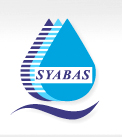By Gan Pei Ling

Syabas logo (source: syabas.com.my)
SELANGOR, apparently, is facing a water crisis. On 15 July 2012, Selangor’s sole water distributor Syarikat Bekalan Air Selangor (Syabas) announced its application to carry out water rationing exercises in Selangor, Kuala Lumpur and Putrajaya.
The Selangor government responded with puzzlement. Representatives said the state’s seven dams were filled to the brim. But Syabas countered that regardless of the dams’ water levels, Selangor’s 34 water treatment plants are operating at full — and some over-capacity. It said overall water reserve levels were down to two percent instead of the “safe mark” of at least 20.
After the Selangor government proposed to take-over Syabas and a Special Cabinet Committee on the Selangor Water Issue refused Syabas’s proposal, Syabas backed down. Water rationing was a “long-term plan” but it wasn’t necessary to implement it now, said its chief operating officer Datuk Lee Miang Koi.
So were the 7.5 million consumers in Selangor, Kuala Lumpur and Putrajaya taken for a ride? Is there or is there not a water crisis and what is being done to ensure it doesn’t happen?
Water crisis?
There is currently no widespread water shortage across the state and two neighbouring federal territories, according to a Selangor government task force set up to monitor Syabas’s daily operations.

Khusrin Munawi (pic source: jais.gov.my)
The task force led by state secretary Datuk Khusrin Munawi and staffed with water experts and Selangor Economic Planning Unit (UPEN) officers also uncovered something revealing. Selangor’s 34 treatment plants are jointly capable of treating up to 4,807 million litres of water per day (MLD). But, Syabas is only capable of distributing up to 4,411 MLD. So even if the treatment plants fulfilled their full potential in their water treatment capacity, Syabas still can’t distribute all of it. Moreover, an ongoing mitigation project will reportedly boost the treatment plants’ capacity to 5,139 MLD in March 2013.
In addition, up to 1,389 MLD is lost due to pipe leakages and theft, also known as non-revenue water. Only some 2,944 MLD treated water reaches consumers. A 32% of non-revenue water is extremely high compared to five percent in Singapore and seven percent in Germany.
Syabas has said that the Selangor government needs to approve the Sungai Langat Two treatment plant to alleviate the water crisis. The multi-billion project involves transferring and treating raw water from Pahang. Federal government ministers also support the project.
But why push for a mega project when Syabas can’t even distribute all the water it treats? And why doesn’t Syabas fix the pipe leakages and theft before advocating a multi-billion ringgit interstate water transfer project?
Non-revenue water
Syabas says the Selangor government is to blame for freezing its capital expenditure programme and thereby jeopardising efforts to bring down non-revenue water. But federal lawmaker Tony Pua pointed out in a 7 August public forum that the state has no obligation to fund the private company.

Tony Pua (file pic)
“The [concession] agreement says Syabas may request for funding from the state. But [there are] no obligations on the part of the state to fund Syabas’s pipe-replacement programmes,” said the Petaling Jaya Utara Member of Parliament in an email to The Nut Graph on 17 Aug 2012.
The Selangor government has taken issue with Syabas’s financial management. It sought to terminate the concession agreement with Syabas in 2008 as an audit report found the company had breached contract terms. This included awarding up to 72% of contracts, worth RM600 million, in direct negotiations instead of via open tenders as stipulated in the 2004 concession agreement.
Old spat
The recent water spat is but an extension of the three-year deadlock over the state’s water restructuring exercise.

Khalid Ibrahim (file pic)
Menteri Besar Tan Sri Khalid Ibrahim’s administration has been trying to restructure the fragmented water industry and terminate what it claims are lopsided concession agreements with the existing water concessionaires.
Three companies — Puncak Niaga Sdn Bhd (PNSB), Konsortium Abass Sdn Bhd (Abass) and Syarikat Pengeluar Air Sdn Bhd (Splash) treat the raw water from dams. Syabas distributes it to consumers. The Selangor government says it can improve efficiency and keep water tariffs low if it restructures the water sector by taking over the four companies. It offered RM5.7 billion for them in February 2009 and revised it upwards to RM9.3 billion in June 2009 after the initial bid was rejected.
Splash, a Gamuda subsidiary, and Selangor-owned Abbas accepted the RM9.3 billion deal. But, Syabas and PNSB, both owned by Puncak Niaga Holdings Bhd, snubbed the offer. Puncak Niaga Holdings executive chairperson Tan Sri Rozali Ismail was formerly an Umno Selangor treasurer.
It cannot be proven that partisan interest came into play but the refusal of the deal is certainly in line with how the federal government has dealt with Selangor’s water-restructuring efforts. It has repeatedly ignored Selangor’s requests to terminate the concession agreement with Syabas. As the agreement is signed between Syabas, the Selangor government and the federal government, Selangor can’t terminate the agreement without the federal government’s agreement. The federal government also refused public disclosure of the concession agreement, which is classified under the Official Secrets Act. It has also not exercised its power under the Water Services Industry Act 2006 to intervene and resolve the impasse. Under the Act, the federal government may assume control of the concessionaire’s business if it is deemed necessary for “national interest”.
One has to ask whether the federal government is acting in good faith when it was previously supportive of Selangor’s investment arm Kumpulan Darul Ehsan Bhd’s plan to consolidate the fragmented water sector. This, however, was before the 2008 elections when Barisan Nasional was still in power in Selangor.
Consumers first, politics later
Water is a vital need for all. It is unfortunate that it seems to have become a part of politicians’ arsenal in trying to win the public’s favour. The recent “water crisis” claim highlights again how urgent it is to end this three-way deadlock between the Selangor government, Syabas and the federal government.
Khalid’s administration proposed to hire an international arbitrator back in 2010 to ensure the four companies received a fair offer from the state. At the very least, parties could agree to this to see whether an acceptable and face-saving solution can be found to ensure that Selangor residents’ water supply is not jeopardised. - Nut Graph




No comments:
Post a Comment
Note: Only a member of this blog may post a comment.